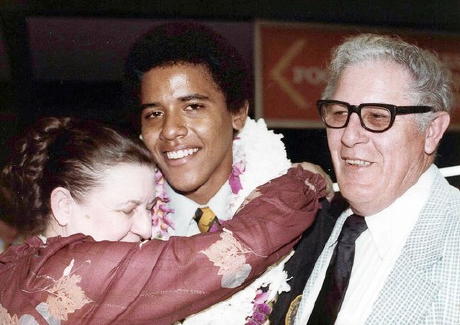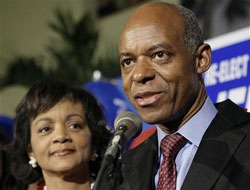
Earl Ofari Hutchinson
The smile on Eartha Kitt’s face was unforgettable. It belied the pain, ridicule and turmoil that she had endured after she was unceremoniously shoved at or near the top of then President Lyndon Johnson’s enemies list. But that seemed to be the furthest thing from her mind that late spring afternoon in 1978 when she greeted me at the old Aquarius Theater in Hollywood. Kitt was in Los Angeles starring in her tour production of the musical Timbuktu. I was assigned to do a brief interview and a review of the production.
Kitt’s smile and infectious energy melted the awe and nervousness that I felt at being up close too and actually talking with an entertainment legend. Then there was the “incident.” That was the furor that Kitt ignited when she denounced the Vietnam War and poverty to Johnson at that White House luncheon in January, 1968. A decade later the controversy still got the tongues wagging.
Her performance in Los Angeles was in part Kitt’s American scene entertainment rehabilitation after being virtually banned in the U.S. after her Johnson White House outburst. Her performance was also in part a brash effort to reclaim the luster that had made her virtually a household name and an icon in the entertainment world in the 1950s and early 1960s. By then Kitt had firmly established her legacy as an award winning internationally acclaimed singer, dancer, film, stage and TV actress. Kitt was tagged as sultry, sensual, and sexual alluring. But that was the surface stuff. Kitt’s brash, sassy, and high energy style and persona sent the clear message that she was her own woman. She refused to be relegated to the stereotypical stage and film roles, and turned her sensuality into a badge of fierce independence and pride, the trademark of defiance. Kitt’s pioneer independence and sense of self influenced the coming generation of young female entertainers and personalities from Oprah to Beyonce to Madonna. They owe her a debt of gratitude.
But even that side of Kitt obscured the Kitt who was passionately devoted to and supported peace and civil rights causes. The clash with Johnson, really the Johnson’s, Lyndon and Lady Bird Johnson, at the celebrity women’s luncheon in January 1968 gave the first public hint of that.
Lady Bird Johnson had invited Kitt to the luncheon and in an innocent moment asked Kitt what she thought about the problems of inner city youth. Kitt didn’t mince words and lambasted the Johnson administration for not doing more about poverty, joblessness, and drugs in black communities. Kitt didn’t stop there, she tied her outburst directly into an attack on the Vietnam War, a war she said was without reason or explanation. Kitt’s verbal assault on the war and racial problems made headline news. A badly shaken first lady and an enraged LBJ denounced her. The next few years she was hounded and harassed by the FBI, the IRS and Secret Service agents. The CIA even compiled a gossipy, intrusive dossier on her that attempted to paint her as a sex starved malcontent. The public storm and the negative press proved too much.
Kitt’s career was effectively dead in the United States. But she stuck by her guns and did not apologize, retract or soften her criticism of Johnson’s war and racial policies. Kitt in fact hadn’t said anything at that luncheon that thousands of others hadn’t said about Johnson’s hopelessly failed, flawed and losing war and racial problems. The difference was who said it; namely a celebrated star, and where it was said at the White House. Kitt took the heat and paid the price for giving an honest opinion and her deep felt belief about the cause of peace and social justice. She was branded as a racial agitator.
Missed in the overreaching hysteria and the vindictive bashing was that underneath the glitter and carefully crafted sexpot image, Kitt had given time and money to the NAACP and other civil rights organizations. She supported and participated in the March on Washington. During her wilderness years when she was forced to work outside the U.S. she took heat for performing before all white audiences in South Africa. But like so much about Kitt that went unnoticed, she broke barriers by insisting that her cast was integrated. She also quietly raised money for black schools in the country.
During our brief talk before her stage performance in Los Angeles, Kitt spent as much time talking about her devotion to the civil rights movement and the injustice of apartheid in South Africa, than about the production she was in. She did not mince words when I gingerly asked her about the “incident.” She laughed but did not express any regret about what she said and did that day at the White House. She expressed no bitterness about the years of media and public ostracism.
This is the Eartha Kitt, the impassioned contributor to peace and civil rights, that I knew, remember, and pay homage to.
C'est si bon"
Earl Ofari Hutchinson is an author and political analyst. His forthcoming book is How Obama Won (Middle Passage Press, January 2009).



